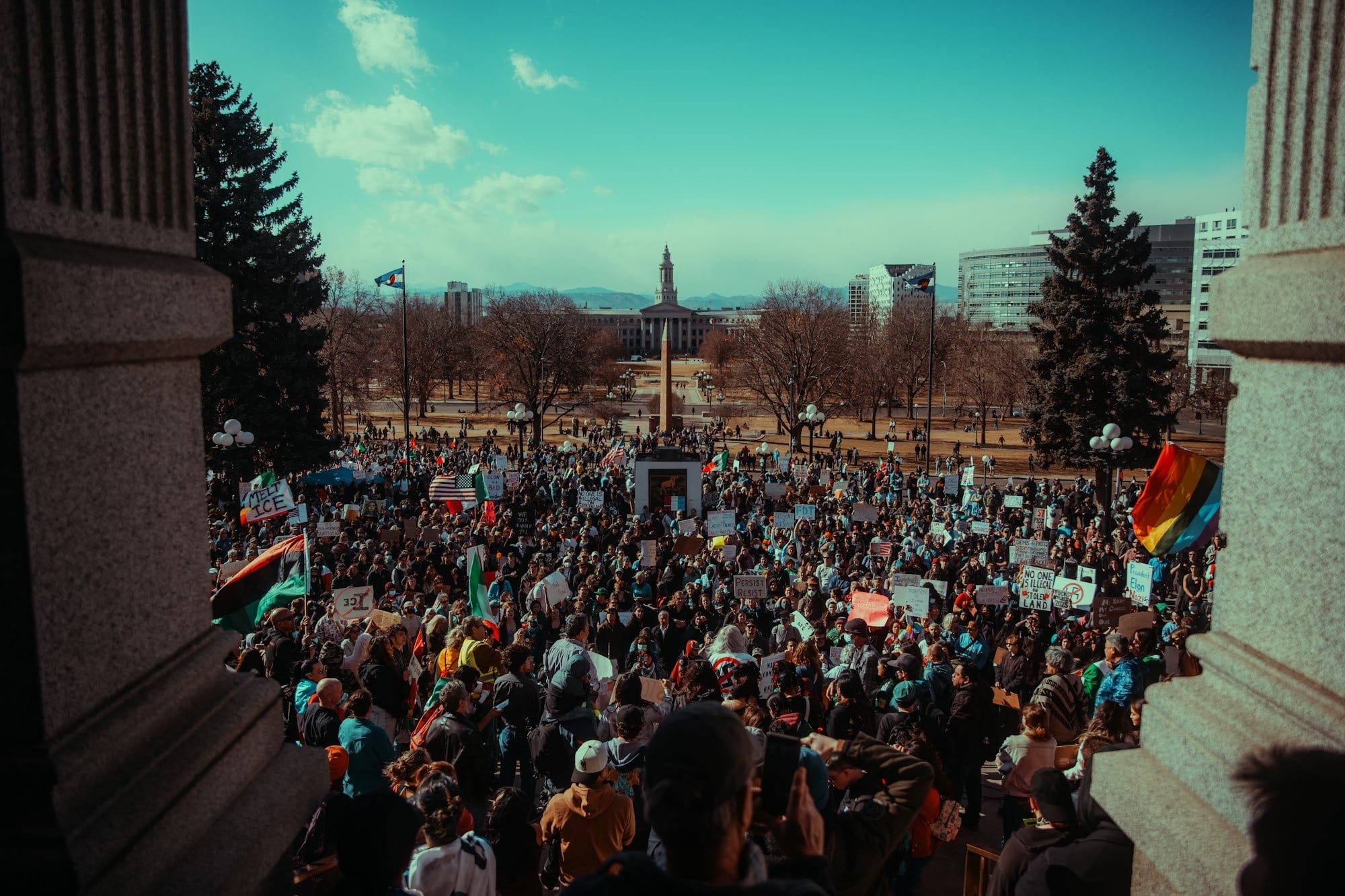
Tiny News Collective, in collaboration with the Latino Media Consortium and URL Media, hosted a legal briefing for publishers and journalists covering immigrant communities in the current political climate. The briefing was facilitated by media law expert Erin Victoria, who presented resources and fielded questions from attendees.
Trump-era policies are triggering unprecedented legal uncertainty, Victoria noted throughout the presentation. Independent journalists face heightened legal risks and must proactively protect themselves, their sources and their organizations when covering high-risk topics such as immigration. Independent outlets should prepare for legal challenges and financial pressures aimed at discouraging critical reporting, she said.
Below are five key takeaways teased out from Victoria’s talk for small, indie publishers and journalists.
1. Legal and Cybersecurity Risks for Independent Outlets While the Trump administration has been targeting larger outlets like the Iowa-based Des Moines Register and cable news networks like CNN or MSNBC, Victoria advised attendees to pursue legal best practices to mitigate the risks of defamation lawsuits, enforcement actions and digital surveillance. Steps include understanding local anti-SLAPP laws, securing libel insurance and following rigorous fact-checking processes. Additionally, she encouraged journalists and outlets to strengthen cybersecurity with colleagues and sources through encrypted communications and secure data storage.
Resources:
2. Challenges in Immigration Reporting and Public Records Access Accessing immigration records, detention centers and court proceedings requires preparation. Federal agency records (ICE, USCIS, CBP, EOIR) require FOIA requests, but private detention centers are exempt from FOIA, Victoria said. Immigration court hearings are generally public, but judges can close them at their discretion.
Resources:
3. Protecting Source Confidentiality Given the increased risks facing immigrant communities, reporters must be vigilant in shielding sources. Best practices include using encrypted communication tools, pseudonyms and anonymizing details to prevent identification or retaliation. Understanding Reporters’ Shield Laws — which vary by state — is crucial for legal protection.
Resource:
4. Legal Considerations for Journalists with Immigration Status Concerns, Newsrooms with 501c3 Status Victoria noted parallels between journalists worried about their reporting impacting their immigration status and nonprofit newsrooms worried about their tax status. For journalists with uncertain immigration status she recommended they avoid unnecessary travel, engage legal counsel in advance and maintain documentation of their U.S. ties. Outlets operating as 501(c)(3) nonprofits should evaluate their risk tolerance in reporting on immigration issues while also ensuring alignment with their mission and legal standing.
5. Where to Track Executive Orders If you’re trying to cut through the noise around Executive Orders to understand what is being put into effect and could affect you, Victoria recommended following these sources:
Subscribe to Latino Media Consortium or URL Media if you’d like to stay up-to-date on their happenings. For another look at this event, read the Latino Media Consortium's takeaways.
Please note: The best course of action for journalists with legal questions about immigration — whether about their own immigration status or protecting sources — is to consult an immigration lawyer.
The Tiny News Collective is grateful to the Latino Media Consortium, URL Media and Erin Victoria for joining us in trying to meet community needs in this moment. We hope this event will be the first of many offerings for our members and the greater ecosystem of small, independent publishers who have always been on the front lines of informing and equipping communities.
Sign up for our monthly newsletter for ongoing updates, announcements, and resources for newsroom entrepreneurs.